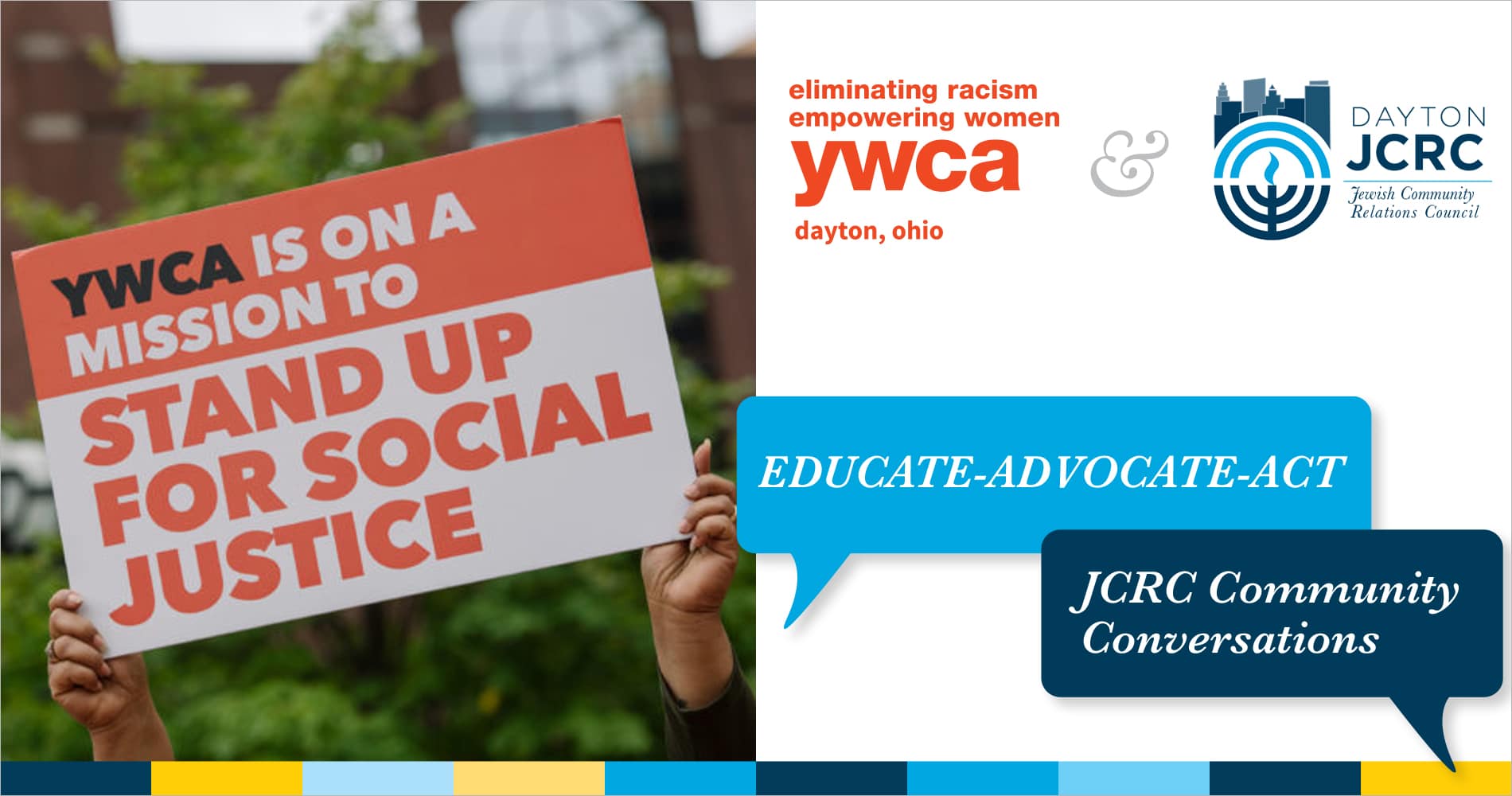
JCRC & YWCA 21-Day Challenge Community Conversations
10 July 2020 @ 12:00 pm - 1:00 pm

Join the Jewish Community Relations Council of the Jewish Federation of Greater Dayton and the Dayton YWCA for the 21-Day Racial Equity and Social Justice Challenge Community Conversation Series. A three-part event to discuss issues of race and social justice both within Dayton and abroad.
The following questions will guide our discussion
Historically, trauma endured by both the Black and Jewish populations has made way for open dialogues, discussions, divisions, and alliances. Racism and antisemitism, while different in definition and in characterization are similar in that both have their roots in hated and xenophobia and endure in our communities and institutions. Violent acts spark immediate need for activism and often times go away when the next newsworthy event takes centerstage. The recent murder of George Floyd has shifted the norm of moving on; and the activism and calls for reform have not gone quiet.
The JCRC wanted to bring together this panel of clergy as we, in the Jewish community know that we, too, are responsible for helping our neighbor. Our guiding value of “Do not stand idly by” –לא תעמד על-דם רעך (Leviticus 19:16), is our commitment in being agents of change.
- From your Jewish perspective, what is our, the Dayton Jewish Community, responsibility in standing up against acts of injustice specifically targeting marginalized communities?
- Is pursuing racial justice an important value of Jewish tradition? How so or not so?
- While alliances between Blacks and Jewish people has ebbed and flowed throughout our history, a significant partnership was during the civil rights movement. Rabbi Abraham Joshua Heschel and Reverend Martin Luther King, Jr. were comrades fighting to end racial discrimination and gain equal rights under the law. Rabbi Heschel noted: “In a Free Society some are guilty, and all are responsible.” Can we build a new alliance, and what would this alliance look like?
- The Black Lives Matter Movement began in 2013 after the acquittal of George Zimmerman in the shooting death of Trayvon Martin. This non-violent activist movement is a call to action against systemic and institutional racism. Like many movements it is a coalition of individuals and agendas. Some vocal supporters of the BLM have also been critical of Israeli policy, and others have voiced more openly antisemitic rhetoric. What strategies and suggestions do you have for engaging with BLM while standing against antisemiticism?
- The organization, Be’Chol Lashon, Global Jews’ mission is to strengthen Jewish identity by raising awareness of the ethnic, racial, and cultural diversity of Jewish identity and experience. Jewish people of Color are standing up and demanding to be noticed and heard. How do we change the narrative that all Jewish people are not white? And, if we affirm the belief that race is a social construct, should it matter?
- For our community members who prefer to quietly engage – what are their options for activism?